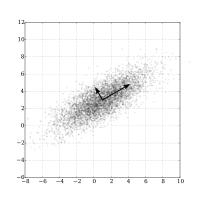
Identify connectome between genotypes and brain network phenotypes via deep self-reconstruction sparse canonical correlation analysis
Sign Up to like & getrecommendations! Published in 2022 at "Bioinformatics"
DOI: 10.1093/bioinformatics/btac074
Abstract: MOTIVATION As a rising research topic, brain imaging genetics aims to investigate the potential genetic architecture of both brain structure and function. It should be noted that in the brain, not all variations are deservedly… read more here.
Keywords: brain; analysis; sparse canonical; reconstruction sparse ... See more keywords

MRI Reconstruction From Sparse K-Space Data Using Low Dimensional Manifold Model
Sign Up to like & getrecommendations! Published in 2019 at "IEEE Access"
DOI: 10.1109/access.2019.2925051
Abstract: Recent compressed sensing (CS) approaches to utilize the similarity and redundancy of magnetic resonance (MR) image patches to enable reconstruction from sparse k-space measurements. In this paper, the patches’ similarity and redundancy are exploited by… read more here.
Keywords: manifold; reconstruction sparse; dimensional manifold; low dimensional ... See more keywords

Guided depth image reconstruction from very sparse measurements
Sign Up to like & getrecommendations! Published in 2018 at "Journal of Electronic Imaging"
DOI: 10.1117/1.jei.27.5.053016
Abstract: Abstract. Depth images captured from modern depth cameras generally suffer from low spatial resolution, noise, and missing regions. These kinds of images cannot be used directly in applications related to depth images, e.g., robot navigation,… read more here.
Keywords: resolution; reconstruction sparse; image; depth image ... See more keywords

A Novel Reconstruction of the Sparse-View CBCT Algorithm for Correcting Artifacts and Reducing Noise
Sign Up to like & getrecommendations! Published in 2023 at "Mathematics"
DOI: 10.3390/math11092127
Abstract: X-ray tomography is often affected by noise and artifacts during the reconstruction process, such as detector offset, calibration errors, metal artifacts, etc. Conventional algorithms, including FDK and SART, are unable to satisfy the sampling theorem… read more here.
Keywords: noise; sparse view; reconstruction; reconstruction sparse ... See more keywords